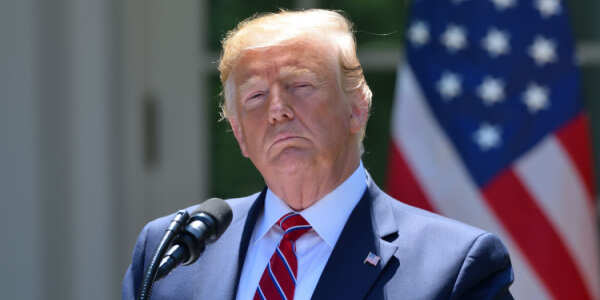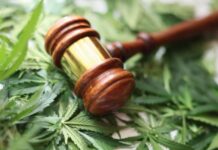
On the surface, it seems that special counsel Jack Smith is creating a legitimate case against former president Donald Trump. So far, his laundry list of charges includes conspiring to obstruct Congress’ certification of the 2020 election, conspiring to undermine the integrity of the election process, and conspiring to deceive government officials overseeing the election.
There’s only one small problem with his case. Smith has neglected to provide any concrete explanation of exactly how Trump broke the law. Simply piling charges on top of charges does not make a defendant “more guilty” in the eyes of the law. It’s this lack of clarity that the Trump legal team is hoping to exploit.
Late Monday night, Trump’s legal team filed three motions to get his January 6th trial thrown out before it reaches a jury.
First, Trump maintains that his Senate acquittal in an impeachment trial, which occurred shortly after leaving office, should shield him from prosecution related to the same conduct.
Next, Trump’s legal defense team insists that President Joe Biden’s reported statements on the case warrant an investigation into potential selective prosecution, if not an outright dismissal. But the outspokenly anti-Trump U.S. District Court Judge Tanya Chutkan has survived attempts to force her recusal in the case, and it seems that in the case of Liberals vs. Trump, all bets are off as far as ensuring a fair trial. This motion, then, will probably also fail.
That leaves Trump’s best shot for beating these “charges” in a motion his legal defense team filed as a constitutional argument. The stated charges infringe on his First Amendment right to petition government officials and express his concerns about the 2020 election. Top of Form
Trump’s argument revolves around the idea that criminalizing his post-election actions would set a precedent that could potentially criminalize typical political activities such as lobbying or peaceful protest. He referred to a recent opinion from the D.C. Circuit Court of Appeals, suggesting that he couldn’t be charged with “corruptly” trying to interfere with Congress’ Electoral College proceedings on January 6, 2021. Trump pointed out that the opinion aimed to safeguard a wide range of political advocacy, emphasizing the protection of these activities.
But prosecutors firmly reject Trump’s portrayal of his actions as harmless political advocacy or a means to uphold electoral integrity. They argue that Trump intentionally spread false information about voter fraud to orchestrate a coercive campaign against both state governments and his vice president, Mike Pence. But this means proving that touting alleged “misinformation” is a criminal offense.
Smith contends that Trump played a central role in a criminal conspiracy, which involved the creation of fraudulent slates of presidential electors to fuel the turmoil on January 6, when Congress convened to finalize the election results. Trump also surrounded himself with attorneys who concocted fringe theories to rationalize this effort, Smith claims.
The false slate of electors may be the only argument that Smith might make stick, but Smith cannot point to the exact way Trump was directly involved. This makes the “charge” against the former president more of a suggestion than a criminal case.
Trump’s legal defense team is doubling down on his defense, arguing for his right to free speech. Smith claims that Trump “incited violence” on January 6th in a speech given prior to the march on the Capitol. Smith is ignoring several inconvenient truths.
The rioting began before Trump’s speech was finished, Trump’s own words during his speech were not incendiary in any way, and Trump attempted to quell the riot before being removed from social media platforms as the incident unfolded.
So, what did Trump do to incite a riot? Smith doesn’t know, but surely it had to be something. Again, special counsel fails to outline the exact charges against the defendant, preferring to use general terms and cast a wide net in the hopes that something will stick.
Unfortunately, all Smith needs to do is get Trump in the courtroom. He has ensured that between the judge and the jury, a guilty verdict will be rendered despite a lack of a chargeable offense. But Trump’s legal team is working tirelessly to make Smith’s journey more difficult along the way.















